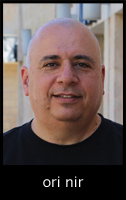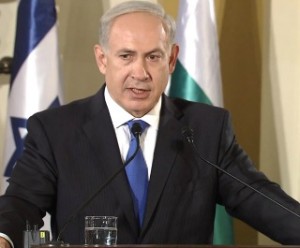Yossi Alpher is an independent security analyst. He is the former director of the Jaffee Center for Strategic Studies at Tel Aviv University, a former senior official with the Mossad, and a former IDF intelligence officer. Views and positions expressed here are those of the writer, and do not necessarily represent APN's views and policy positions.
This week, Alpher discusses where Israel positioned itself in the Middle East during the outgoing year; how the Israel-US relationship appears to have suffered; how events in the surrounding Middle East affected the mood of Israelis; how the so-called “lone wolf intifada” affected Israelis; and the prospects for progress between Israel and the Palestinians in the year ahead .


 Rabbi Susan P. Fendrick is an editor, writer, teacher, and spiritual director. A graduate of
Brown University, she received rabbinic ordination in 1995 from the Jewish Theological Seminary of America and
is an alumna of the Wexner Graduate Fellowship program. Her writing appears in numerous books and
publications.
Rabbi Susan P. Fendrick is an editor, writer, teacher, and spiritual director. A graduate of
Brown University, she received rabbinic ordination in 1995 from the Jewish Theological Seminary of America and
is an alumna of the Wexner Graduate Fellowship program. Her writing appears in numerous books and
publications.



 On a trip to Israel last month, I visited a friend who runs a small store in downtown Jerusalem,
my hometown. Outside, on the street, there were dozens of young American Birthright tourists. “Business must be
hopping, with all these Birthrighters,” I said. “Not quite,” my friend replied. “Their parents send them here
with pocket money, but stay home in the U.S., with their credit cards.”
On a trip to Israel last month, I visited a friend who runs a small store in downtown Jerusalem,
my hometown. Outside, on the street, there were dozens of young American Birthright tourists. “Business must be
hopping, with all these Birthrighters,” I said. “Not quite,” my friend replied. “Their parents send them here
with pocket money, but stay home in the U.S., with their credit cards.”
